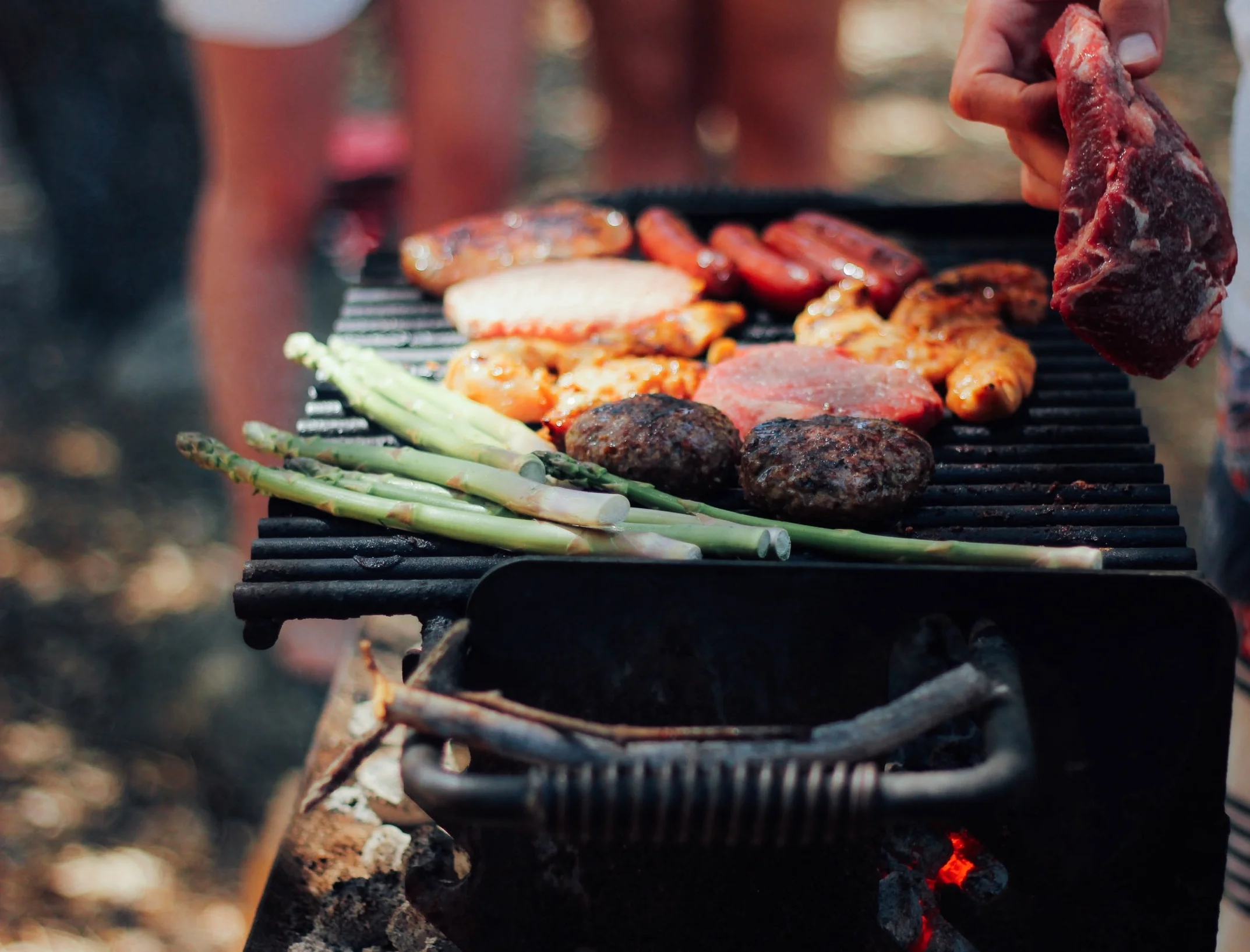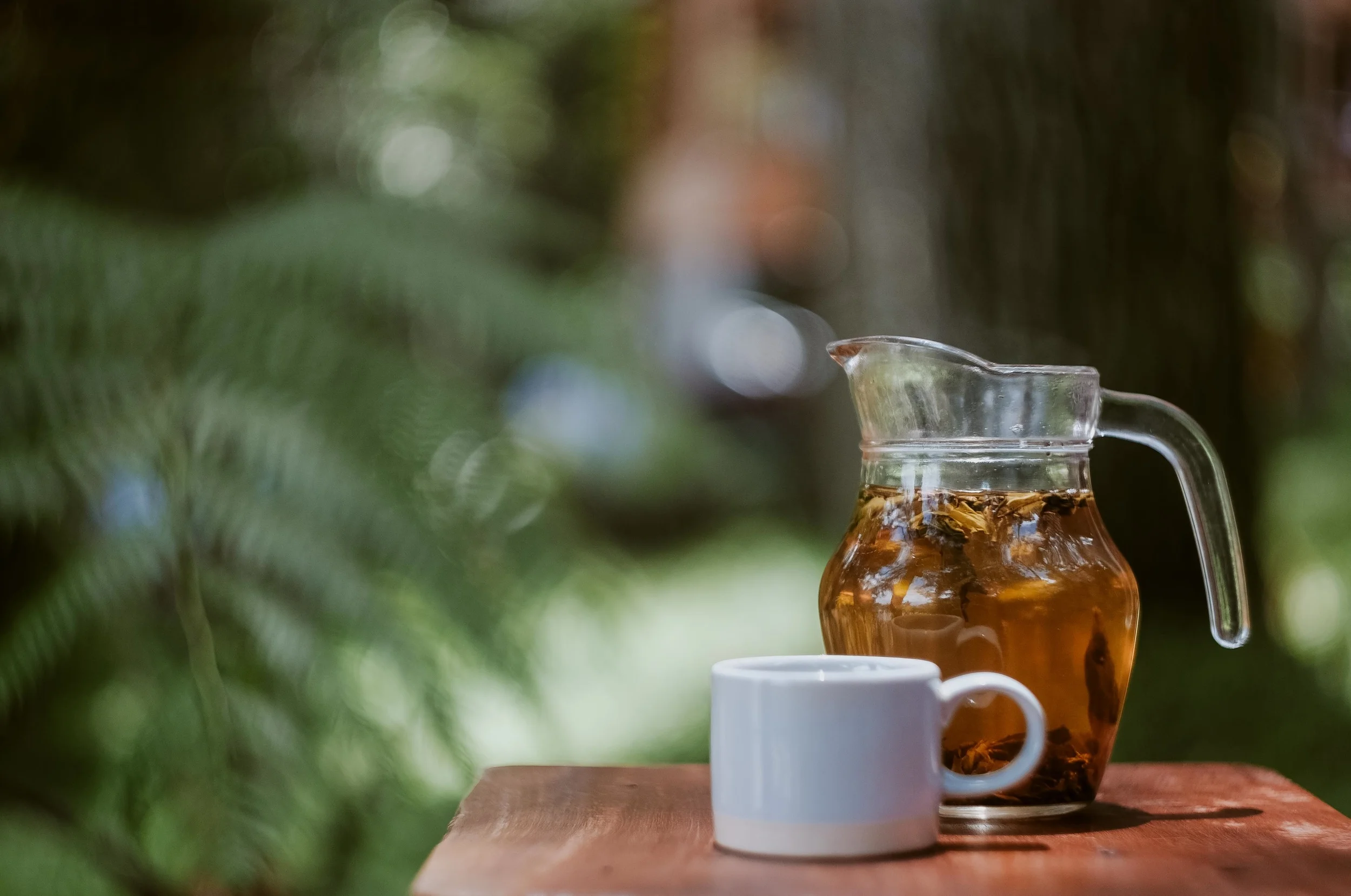Here in New York City our access to locally grown produce is limited as we are in an urban environment. Community Supported Agriculture provides us access to fresh produce that is locally grown in nearby communities outside of the city.
Viewing entries in
June
Nutrition Trend: Juices Pretending To Be Water
Written by Kelli Baker | Reviewed by Nikita Kapur, MS, RDN, CDN, CLT
A recent trend on grocery store shelves has been the emergence of alternative water sources such as coconut water, watermelon water and maple water all spouting superior nutritional benefits to the consumer. These products are hyped up to have additional ingredients to regular H20 including vitamins and minerals that are naturally occurring and capable of enhancing a person’s health akin to a superfood. Essentially what the marketing industry has done is combined our image of water as being essential, hydrating and replenishing with healthy words like coconut, watermelon and maple all in an effort to sell a sugary drink.
Coconut water, one of the first to capitalize on this marketing scheme, has been touted as “mother nature’s sports drink” because of its high potassium content and ability to replenish electrolytes after a tough workout similar to a sports drink. Watermelon and maple water have similar health claims of electrolyte replenishment and product descriptions often include advantageous components like antioxidants and phytochemicals.
While it is true these water sources have various natural vitamins and minerals within them that are beneficial to our health, they also contain added sugar and calories that can add up quickly. These waters have more in common with juices than actual water and are easy to over consume. Moreover, since these drinks have added sugars, they can easily spike your blood sugar levels especially when drinking without exercise, which may also lead to energy crashes. Coconut water for instance contains 6g of sugar and 46 calories per 8oz serving while watermelon water has the same amount of calories with 10g of sugar and maple water contains 25 calories with 5g of sugar per 8oz serving. This may not seem like a significant amount, but for someone who wants to lose weight these unnecessary drinkable calories and grams of added sugar can add up throughout the day. With that being said, if you still feel the urge to enjoy natural flavored water like coconut, watermelon or maple, the best time is an hour after a workout when a quick source of these nutrients is optimal to consume. Enjoy these juice waters as a post workout treat while sticking to regular water throughout the day.
So, if you are looking to lose some weight and save some money, seeing as one bottle will cost you between $3 to $5, you are better off eating your calories instead of drinking them. The truth of the matter is you could drink some plain H20, eat some coconut or watermelon, or any other fruit or maybe even add some maple syrup to your breakfast pancakes and receive the same nutritional benefits that you would from drinking one of these higher priced waters with the added benefit of feeling fuller.
HEALTHY EATING AT BARBECUES & PICNICS
Written by Kanika Kohli| Reviewed by Adiana Castro, MS, RDN, CDN, CLT
Summer is finally here and it’s time to be outdoors to get some sun. Weather you are planning on hitting the beach or going out for picnics and barbeques you need to keep in mind that summer does not give us an excuse to eat poorly. It is very easy to make poor food choices when outdoors, especially with fast foods and sugar-laden foods being ubiquitous.
So to make sure we eat well when outdoors, we need to plan ahead and carry foods and snacks that not only taste good but also are nutritious.
Here are some tips to help you eat healthy through the summer season.
Tips to eat healthy at a BBQ
Contribute something that's good for you: if you bring a healthy dish/snack, you know you will be able to eat something nutritious, no matter how decadent the other dishes are.
· Make or Bring your own salad: BBQ’s are notorious for having salads of every type, most of which are salads by name only such as pasta salad, taco salad, macaroni salad, and potato salad. So, bringing a green-based salad with an olive oil/lemon juice/vinaigrette dressing will ensure you have a healthy option for salad.
· Make or bring a healthy appetizer: Chips and dips are enjoyable to eat but can load up on calories, so make sure to bring at least one healthy appetizer like vegetables and hummus to munch on while the grill is firing up.
2. Fill up on vegetables and healthy items first: Try to load up on the green salads or grilled vegetables first before you fill your plate with high calorie foods (ribs etc.), doing so will not only give you a dose of antioxidants and fiber, you will also be less likely to overeat the higher calorie foods.
3. Choose lean protein and healthy fats: Lean protein and health fats help you to feel fuller than carbohydrates, so enjoy a lean beef burger, a piece of chicken or fish and some tofu.
4. Be mindful and eat slowly: eating slowly will prevent you from overeating
5. Watch portion size: Here are 3 easy points of reference
· A tennis ball or clenched fist = one cup. This measure is useful for sides such as pasta salad, potato salad or Cole slaw. Aim for 1cup total of these starchy (often calorie laden) side dishes.
· A deck of cards = 3 ounces of meat or 1 serving. This measure is useful for food like steak.
· Your thumb = about 1 tablespoon. This is good for estimating salad dressing or spread.
6. Watch those liquid or alcohol calories: Sweet and sugary drinks can load up on calories (have a few hundred calories), so make sure you don't overdo it.
7. Go easy on dessert: If there is something like fresh fruit being served take that first and then go for the dessert.
TipTips to pack healthy snacks for the beach or a picnic
Summer picnics and beach outings occur at the peak of the fresh fruit and vegetable season. This is the time to add color to your meals and to fill your picnic basket or beach cooler with fresh produce like peaches, mangoes, berries, cherries, watermelon, tomatoes, avocados, corn, zucchini, peas and fresh herbs – they are not only packed with antioxidants but also taste delicious.
Carry Light and crunchy appetizers
· Pack crisp raw veggies like cucumber, carrots, celery, asparagus tips, cherry tomatoes and radishes and enjoy them with nutritious dips like hummus, salsa, eggplant dip, bean dip, avocado dip or Greek yogurt with herbs and spices.
· Carry wholegrain crackers such as oat crisps instead of high fat chips and enjoy them with nutritious dips.
2. Carry wraps/sandwiches as a main dish: Wraps are easy to transport and eat, and can be super nutritious when made with whole grain tortilla/bread, lean protein, veggies and homemade Ranch dressing or salsa.
3. Carry nutritious snacks like
· Greek Yogurt
· Granola
· Fresh fruits/frozen fruits
· Ruby rocket’s frozen veggie and fruit pops
· Wholegrain crackers with nut butter or cheese
· Trail mix
4. Carry lots of frozen/cold water bottles
Stay hydrated
It is very easy to get dehydrated without even knowing it when you are outdoors
(BBQ, beach or picnic) in the sun, that's why it is very important to make sure you consume plenty of fluids throughout the day to avoid getting dehydrated.
A strategy to avoid dehydration is to carry a water bottle to sip on water regularly.
You may have heard your friends talk about it, or seen it sold at your favorite lunch place, but what is Kombucha? Simply, Kombucha is a slightly bubbly, sweetened black or green tea that is produced by fermenting the tea with what is called a SCOBY (a “symbiotic colony of bacteria and yeast”). Sometimes the tea also has added flavors like fruit juice.





